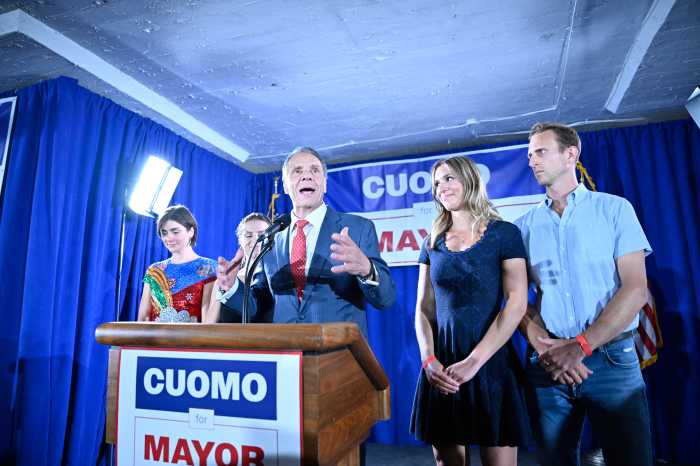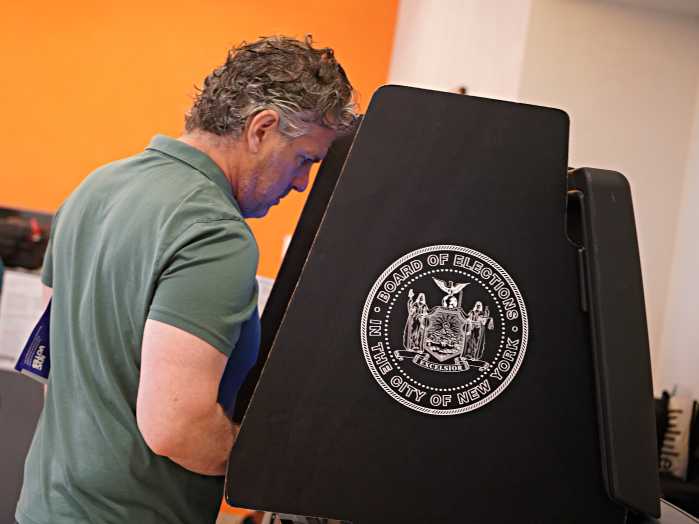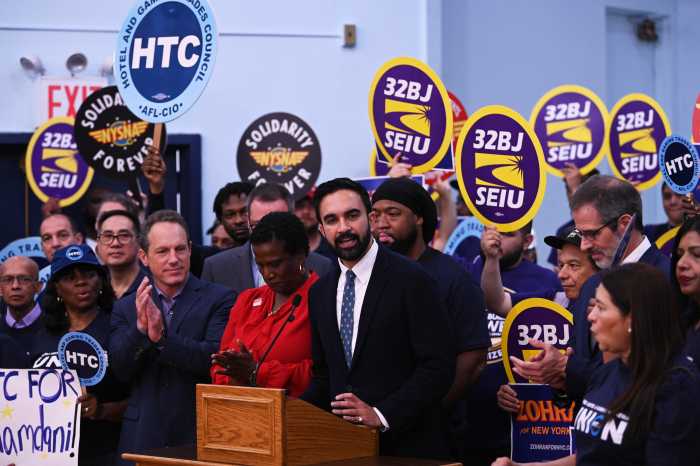When Hillary Clinton talks about her record as a New York senator, she often boasts about her success working with both Democrats and Republicans in Congress.
“I’ve worked across the aisle to pass laws and treaties and to launch new programs that help millions of people,” she said during her speech at the Democratic National Convention.
When she was in the Senate from 2001 to 2009, she co-sponsored 70 bills that were voted into law. Of those, 26 were introduced by Republicans.
But critics have also pointed out that only three of the bills she sponsored were passed, which is true. Clinton introduced 363 bills and only three became law — one to name a highway, one to name a post office and another to create a national historical site.
This information alone is not enough to judge a senator’s success or impact, said Robert Shapiro, a political science professor at Columbia University. He added that at the time Clinton was in the Senate, Republicans had a majority in Congress and President George W. Bush was in office, so it was often difficult for Democrats to pass legislation.
Among the laws Clinton co-sponsored were the Lily Ledbetter Fair Pay Act of 2009, the Pediatric Research Equity Act of 2003, the Veterans’ Mental Health and Other Care Improvements Act of 2008 and the Aviation and Transportation Security Act. She also submitted nearly 300 amendments to bills during her time in the Senate.
But Clinton may be most remembered for her response to 9/11, the nation’s deadliest terror attack, which devastated New York during her first year in office. She immediately began fighting for federal funding for New York City, helping to secure $21 billion to rebuild after the attacks.
She was also one of the first politicians to publicly recognize that the smoke and debris around Ground Zero were dangerous, prompting her to fight for health care benefits for first responders, said Marvin Batea, a city paramedic at the time.
Now 56, Batea has suffered two strokes and has both PTSD and depression. He had to stop working in January 2004 because of 9/11-related illnesses.
Batea said he visited Washington, D.C., more than 20 times to push for health care, and Clinton’s support did not go unnoticed.
“She started working on it right away,” Batea said. “She’s been a really good friend to the first responders.”
But over the course of her time as senator, Clinton fell short of her pledge to create 200,000 jobs in New York — a promise she made during her campaign.
“She really was never able to do that,” Shapiro said.
Experts have said the promise of 200,000 jobs was unrealistic — an example of a politician who talked big during her campaign but didn’t follow through. Shapiro said Clinton tried to create legislation that would bring jobs to the state, but wasn’t able to produce the outcome she had hoped for.
Still, Clinton was re-elected as New York senator with more than 60 percent of the vote in 2006. Ultimately, her time as senator put her in the position to be able to run for president for the first time in 2008, albeit unsuccessfully.
“Her service as a senator served her well,” Shapiro said. “It gave her what she needed to run for president.”


































